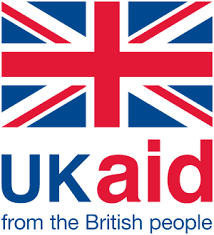Community / Land projects / F.a: Implementation of biocultural community protocol to restore Embobut and Kapolet Forests and securing of S
F.a: Implementation of biocultural community protocol to restore Embobut and Kapolet Forests and securing of S

€0
01/23 - 12/23
Completed
This project is part of
Implementing Organisations
Donors
Data Providers
General
In 2020-21, Siemenpuu supported the drafting of the biocultural community protocol (BCP) of the Sengwer indigenous people of Kenya as part of a joint project of the organizations of two other hunter-gatherer peoples of Kenya (the Ogiek and the Yiaku). With this support, the basis for the continued work related to the legal, cultural and livelihood foundations of the Sengwer were strengthened. This Sengwer Indigenous Peoples Programme?s (SIPP) project promotes BCP?s use as a tool to protect the interests and rights of the Sengwers of the Embobut and Kapolet forests. In the project, training based on the biocultural protocol of the Sengwer community is given for Sengwer advocacy work, defending land rights and protecting and restoring forests ? also considering the challenges brought by climate change. The training target groups are the representatives of the communities as well as key local level and sectoral government representatives in the project areas. Community representatives are identified and trained to carry out campaign and advocacy work related to human and land rights and climate issues at the county, state and UN level. The project will establish 8 nurseries for both local and non-native tree species with nutritional, economic or agro-forestry potential. The project aims to plant 40,000 trees for restoring natural forests or to utilize the trees in the households. In order to prepare the basis for this work, GIS mapping is carried out on local forest areas and their restoration needs. In addition, information is collected on the effects of climate change in Sengwer communities and their prerequisites for tackling the climate change challenges. The direct beneficiaries of the project are estimated to be around 2,000, of which 500 are women and 400 are children. Indirect beneficiaries are estimated to be around 50,000. They are people in the project areas who benefit from the improved condition of the forests, the climate change mitigation and resilience measures and increased flow of water downstream. It is estimated that there are approximately 33,000 Sengwers in Kenya.



